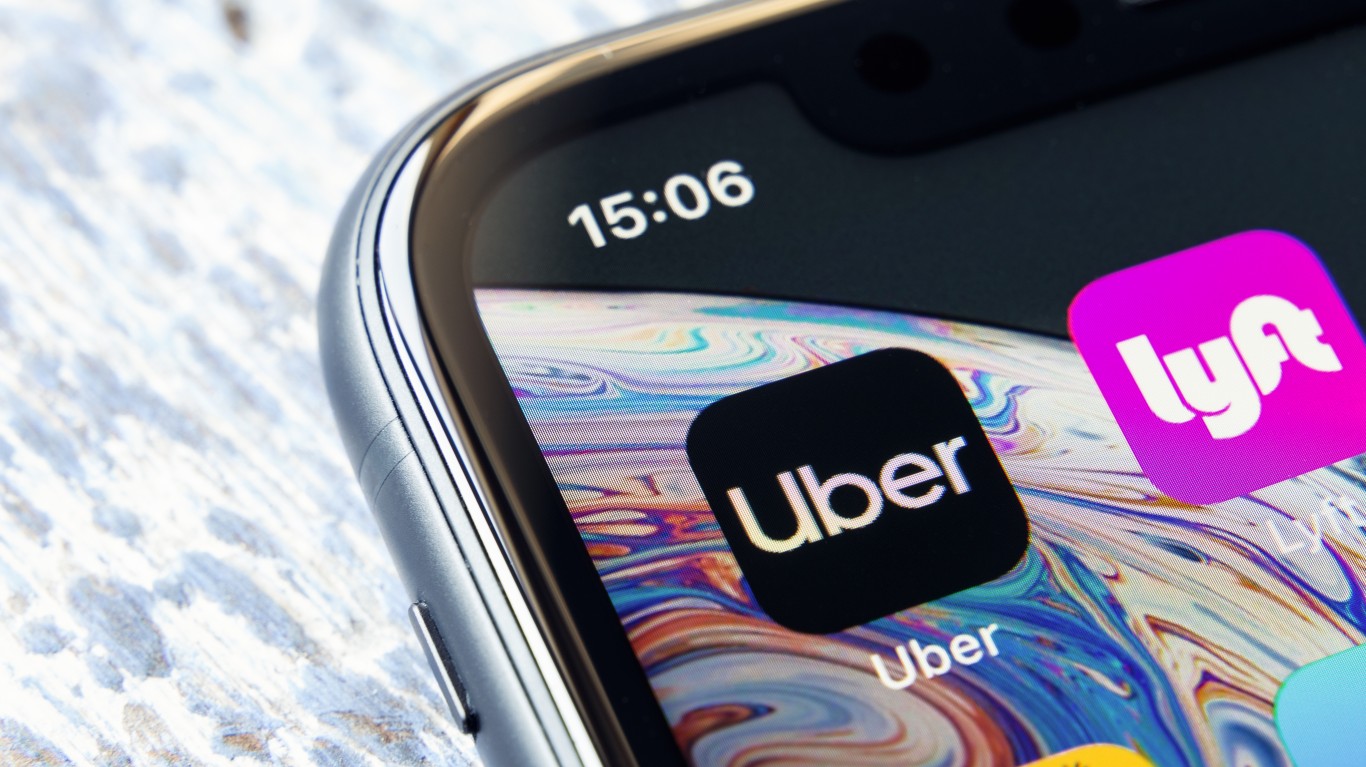
Uber Technologies Inc. (NYSE: UBER) needs to be concerned about more than reaching an acceptable price in its effort to buy food delivery rival Grubhub Inc. (NYSE: GRUB). The companies’ talks are already coming under scrutiny in Washington.
Four members of the Senate Judiciary Committee’s antitrust subcommittee have written to the Federal Trade Commission and the Antitrust Division of the Justice Department about the talks. They urge that the merger discussions be closely monitored.
“A merger of Uber Eats and Grubhub would combine two of the three largest food delivery application providers and raise serious competition issues in many markets around the country,” says the letter dated Wednesday and signed by Sens. Amy Klobuchar (D-Minn.), Patrick Leahy (D-Vt.), Richard Blumenthal (D-Conn.) and Cory Booker (D-N.J.).
Klobuchar, who sought the Democratic nomination for president, has been mentioned as a potential running mate for the presumptive nominee, Joe Biden.
Potential Effects on Local Level
The senators point out that the food delivery app business is dominated by just three companies, GrubHub (which also owns Seamless), DoorDash and Uber Eats, which is owned by the ride-hailing service Uber. “The merger under negotiation would create a sector in which the top two players control 90 percent of sales,” the letter says.
While there is no guarantee that the two companies will come to an agreement, the talks appear to be progressing. GrubHub chief executive Matt Maloney and Uber CEO Dara Khosrowshahi reportedly were in talks on Sunday.
San Francisco-based Uber has offered 1.9 of its shares for each of GrubHub’s shares, The Wall Street Journal reported, citing “people familiar with the matter.” But Chicago-based GrubHub said the offer was too low. Khosrowshahi reportedly said he might be able to go as high as 1.925 Uber shares. But apparently GrubHub is holding out for a better deal.
The senators said in their letter that the merger’s effect on competition would be felt intensely at the local level. “A combined Uber Eats/GrubHub would control 51 percent of the market in Atlanta, 68 percent in Boston, 60 percent in Chicago, 65 percent in Miami, and 79 percent in New York City,” they wrote.
‘An Already Concentrated Market’
“Online food delivery markets are still evolving and finding new ways to connect customers with restaurants,” the letter says. “Consumers should be able to look forward to a future in which online food delivery is more efficient, more innovative, and less expensive. A merger of two of the three biggest rivals in an already concentrated market risks depriving consumers of that outcome by potentially eliminating competition between the existing market participants.”
Uber’s stock price closed at $34.26 on Thursday, down 0.64%. Its 52-week range is $13.71 to $47.08. Uber shares, like many stocks, plunged in mid-March as the COVID-19 crisis took hold.
GrubHub closed at $56.34 on Thursday, down 2.1%. It’s 52-week range is $29.35 to $80.25. GrubHub shares also dropped in mid-March.
GrubHub’s market capitalization is $5.2 billion, compared with $57.6 billion for Uber.
The food delivery business has gained new attention and new customers as people across the country have been in lockdown because of the coronavirus pandemic. Industry leaders GrubHub, Uber Eats and DoorDash all lose money. Uber’s rides segment of business has slumped at the same time.
Senators Not Alone in Their Concern
The industry is highly competitive, with companies offering discounts to gain and keep customers. During the COVID-19 crisis they have also waived fees for restaurants that are struggling to stay afloat with only takeout and delivery orders permitted.
The senators are not the first elected officials to raise concerns about a possible Uber-GrubHub deal. U.S. Rep. David Cicilline, a Democrat from Rhode Island who heads the House Judiciary antitrust subcommittee, has urged a freeze on mergers and acquisitions during the pandemic crisis.
He said, “Uber is a notoriously predatory company that has long denied its drivers a living wage. Its attempt to acquire GrubHub — which has a history of exploiting local restaurants through deceptive tactics and extortionate fees — marks a new low in pandemic profiteering.”
Cicilline added, “We cannot allow these corporations to monopolize food delivery, especially amid a crisis that is rendering American families and local restaurants more dependent than ever on these very services.”
Thank you for reading! Have some feedback for us?
Contact the 24/7 Wall St. editorial team.
 24/7 Wall St.
24/7 Wall St.
